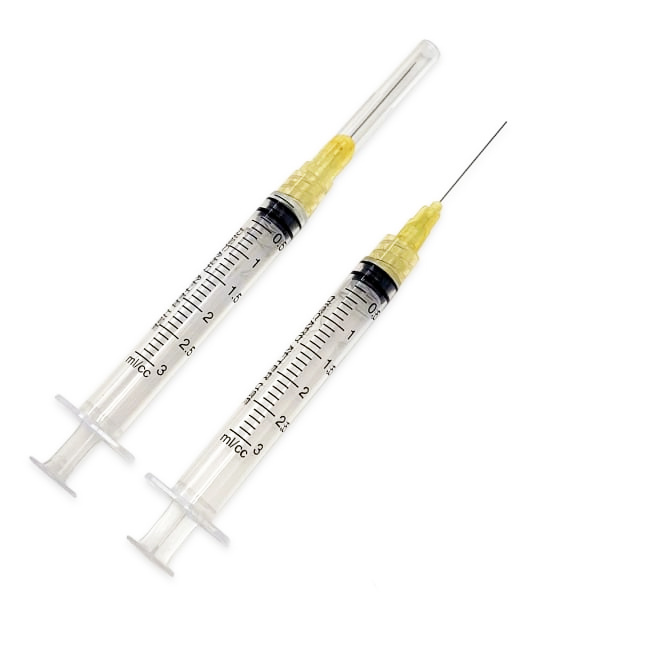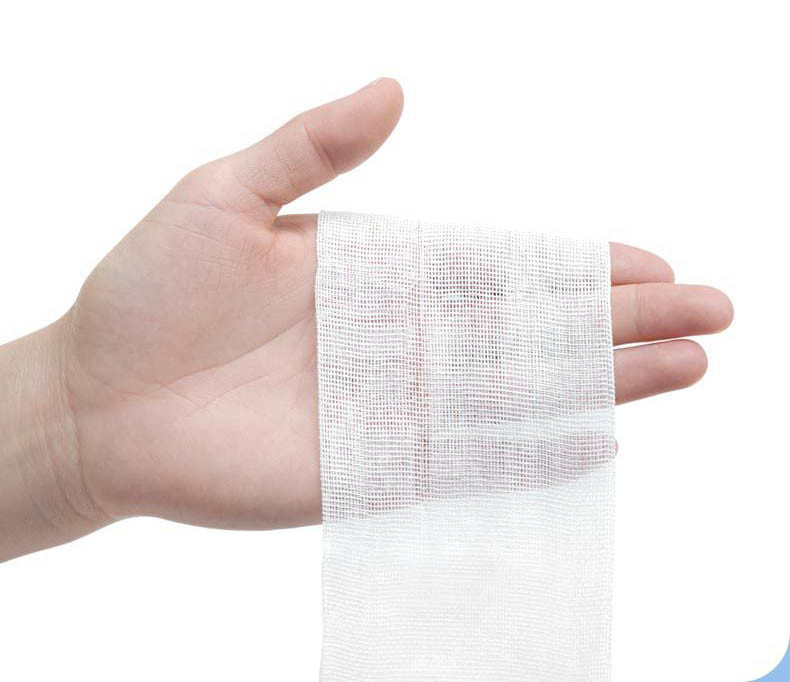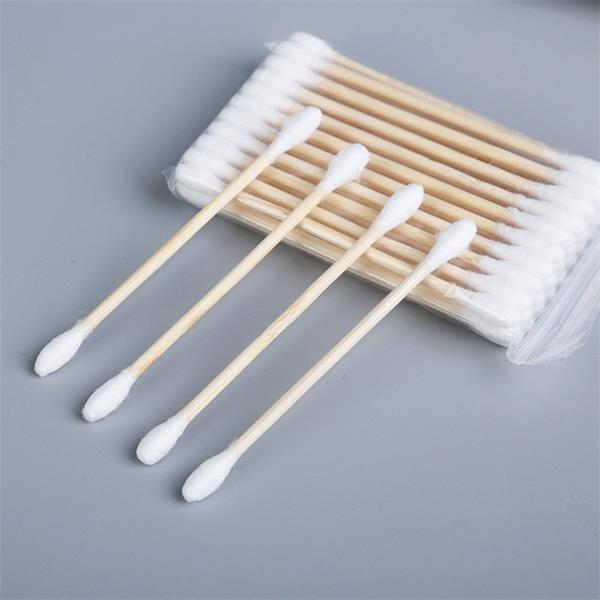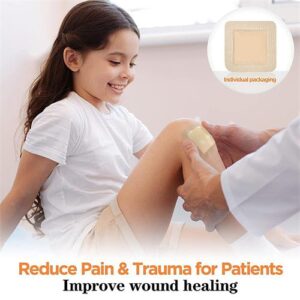Introduction:
In the world of healthcare, every decision we make has a profound impact on patient well-being. When it comes to medical consumables, the choices we make can mean the difference between successful procedures and potential risks.
With a vast array of options available, it’s easy to feel overwhelmed. But fear not! In this comprehensive guide, we’ll equip you with 10 invaluable tips to help you navigate the maze of medical consumables and ensure you’re choosing the best of the best.
Types of Medical Consumables:
Medical consumables play a vital role in healthcare settings, serving various purposes and catering to specific medical needs throughout. Understanding the different types of medical consumables can help healthcare professionals make informed decisions when choosing the best products for their patients. Let’s delve into each category and explore their significance:
Injection Puncture and Polymer Materials:
These medical consumables are essential for procedures involving injections, punctures, and the use of polymer-based materials. Examples include disposable sterile syringes, disposable intravenous infusion needles, disposable sterile catheterization kits, and central venous catheters. These consumables ensure the safe and hygienic administration of medications, fluids, and other substances.



Medical Sanitary Materials and Dressings:
Medical sanitary materials and dressings are crucial for wound care, protection, and maintaining hygiene. They include emery cloth bandages, medical tapes, medical absorbent cotton balls, disposable medical treatment towels, medical gloves, and medical adhesive plaster. These consumables assist in wound care and healing, provide support and protection, and reduce the risk of infection.



Medical Devices in the Operating Room:
Operating rooms require a large selection of specialized medical devices to ensure successful procedures. Examples of these consumables include disposable anesthesia kits, disposable analgesic pumps, endotracheal tubes, medical absorbable sutures, staplers, and ECG electrodes. These devices are designed to enhance surgical precision, patient comfort, and overall safety during operations.



Medical X-ray Auxiliary Equipment and Components:
X-ray technology is fundamental in diagnostic imaging, and medical consumables are necessary for effective X-ray procedures. Consumables in this category include medical X-ray film, medical X-ray film washing kits, high-pressure syringe syringes, and more. These consumables aid in capturing clear and accurate X-ray images for diagnostic purposes.



Dialyzer and Dialysis Tubing:
Dialysis is a critical procedure for patients with kidney failure, and the appropriate consumables are vital for its success. Consumables in this category include ordinary dialyzers, hemofilter, hemoperfusion devices, connected renal replacement therapy tubing, internal fistula puncture needles, safety bacterial filters, and more. These consumables ensure efficient and safe dialysis treatment for patients.



Intraocular Lenses:
Intraocular lenses are used in eye surgeries, such as cataract removal, to replace natural lenses. There are different types of intraocular lenses, including soft and hard lenses, each offering specific benefits and suitability for patients. These lenses restore vision and improve the quality of life for individuals with vision impairments.



Other Special Consumables:
Apart from the mentioned categories, there are numerous other special consumables used across various clinical departments. These include catheters, guide wires, stents, and other specific consumables.
Significance of medical consumables
Medical consumables play a critical role in healthcare settings, encompassing a wide range of products that are essential for maintaining hygiene, facilitating medical procedures, and ensuring patient safety. These consumables are designed to meet stringent quality standards and adhere to regulatory guidelines, making them reliable tools for healthcare professionals. Let’s delve into the significance of medical consumables in more detail:
Maintaining Hygiene:
Medical consumables such as emery cloth bandages, medical tapes, and disposable medical treatment towels are crucial for maintaining proper hygiene in healthcare settings. They are used to dress wounds, secure medical devices in place, and prevent contamination. By providing a clean and sterile environment, these consumables minimize the risk of infections and promote faster healing.



Facilitating Medical Procedures:
Medical consumables are instrumental in facilitating various medical procedures, ensuring their smooth execution and optimal outcomes. For instance, disposable sterile syringes, intravenous infusion needles, and central venous catheters are used to administer medications, fluids, and other substances accurately. These consumables are designed for single-use, preventing cross-contamination and minimizing the risk of adverse reactions.
Ensuring Patient Safety:
Patient health and safety are paramount in healthcare, and medical consumables play a vital role in safeguarding patients during treatments and procedures. For example, medical gloves and medical adhesive plaster provide a barrier against pathogens, reducing the risk of infection transmission. Additionally, disposable anesthesia kits and endotracheal tubes are designed to ensure proper ventilation and minimize the risk of complications during surgeries.

Quality and Reliability:
Medical consumables undergo rigorous quality control measures to ensure their reliability and effectiveness. Reputable manufacturers adhere to strict standards and certifications to guarantee the safety and performance of these products. By choosing high-quality medical consumables, healthcare professionals can trust in their reliability, contributing to improved patient outcomes and overall healthcare quality.
Tip 1: Identify Your Requirements:
When choosing the best medical consumables, it is crucial to start by clearly identifying your specific requirements. This step is essential as it ensures that you select the most suitable consumables for your intended purpose while meeting any regulations or guidelines that may be in place. Consider the following aspects when identifying your requirements:
Purpose:
Determine the specific purpose for which you need the medical consumables. Are you looking for consumables related to injection puncture and polymer materials, medical sanitary materials and dressings, medical devices in the operating room, X-ray auxiliary equipment, dialyzers and dialysis tubing, intraocular lenses, or any other special consumables?
Identifying the purpose will help narrow down your options and ensure that you choose the right type of consumables for your intended use.

Quantity:
Determine the number of medical consumables you require. Consider factors such as the frequency of usage, the number of patients or procedures involved, and any storage limitations. Having a clear understanding of the required quantity will help you plan and manage your inventory effectively.
Specifications:
Pay attention to the specifications of the medical consumables you need. Consider factors such as size, material composition, compatibility with other equipment or devices, and any specific features required for optimal performance. For example, if you are looking for disposable sterile syringes, you might need to specify the desired volume capacity and needle gauge.
Regulations and Guidelines:
Familiarize yourself with any regulations or guidelines related to the medical consumables you are considering. Depending on your location and the specific use of the consumables, there may be standards or requirements set by regulatory bodies or healthcare authorities. Ensure that the chosen consumables meet the necessary quality and safety standards.
By clearly identifying your requirements, including purpose, quantity, specifications, and any relevant regulations or guidelines, you lay a solid foundation for choosing the best medical consumables.
This process ensures that you select consumables that align with your specific needs, adhere to necessary standards, and ultimately contribute to optimal patient care and safety.
Tip 2: Assess Quality Standards:
When choosing the best medical consumables, it is crucial to prioritize quality. The quality of consumables directly impacts patient safety, treatment outcomes, and overall healthcare effectiveness. Here’s why assessing quality standards is essential and an explanation of relevant quality standards and certifications to look for:
Importance of Prioritizing Quality:
Prioritizing quality in medical consumables is paramount to ensure their reliability, performance, and safety. High-quality consumables contribute to accurate diagnosis, effective treatment, and positive patient experiences. They are manufactured using materials that meet stringent standards and undergo rigorous testing, minimizing the risk of defects, contamination, or adverse reactions.
Relevant Quality Standards and Certifications:
When assessing the quality of medical consumables, it is crucial to look for certain standards and certifications that ensure their compliance with industry best practices. Here are some key quality standards and certifications to consider:
a. ISO 13485:
This internationally recognized standard focuses on quality management systems specific to medical devices. It ensures that manufacturers consistently meet regulatory requirements and maintain the highest quality standards throughout the production process.

b. FDA Approval:
Medical consumables that have received approval from the U.S. Food and Drug Administration (FDA) indicate that they have undergone thorough testing and evaluation, ensuring their safety and effectiveness for use in healthcare settings.
c. CE Marking:
The CE mark indicates that medical consumables comply with European Union regulations and meet essential health, safety, and environmental protection requirements. It demonstrates adherence to recognized quality standards within the European market.

d. Good Manufacturing Practices (GMP):
GMP certification ensures that manufacturers follow strict quality control and production processes, maintaining consistent quality and safety standards for medical consumables.
By prioritizing quality and considering relevant quality standards and certifications such as ISO 13485, FDA approval, CE marking, and GMP, you can be confident in the reliability and safety of the medical consumables you choose. These standards and certifications validate that the consumables meet the necessary quality requirements, undergo appropriate testing, and are manufactured by reputable companies committed to maintaining the highest standards of quality and patient safety.
Tip 3: Evaluate Supplier Reputation:
When it comes to selecting medical consumables, it is crucial to thoroughly research and evaluate the reputation of potential suppliers. The reputation of the supplier directly affects the quality of the products you receive and the level of customer service you can expect. Consider the following strategies to assess the reputation of medical consumables suppliers:
Comprehensive Research:
Conduct in-depth research on the website of the suppliers you are considering. Look for information on their company history, industry experience, and customer satisfaction rates. For example, JINYE Medical Supplies, a leading supplier in the industry for over 20 years, has consistently received positive feedback from healthcare professionals for their reliable products, low prices, and exceptional service.

Customer Reviews and Feedback:
Pay close attention to customer reviews and feedback regarding the supplier’s products and services. Online platforms like Trustpilot and customer testimonials on the supplier’s website can provide valuable insights. For instance, XYZ Medical Equipment, a company known for its commitment to quality and customer satisfaction, has received an average rating of 4.5 stars based on over 500 customer reviews.
Certifications and Compliance:
Verify if the supplier holds relevant certifications and adheres to industry regulations. Certifications like ISO 13485 for medical devices or FDA registration demonstrate the supplier’s commitment to maintaining high standards. For instance, LMN Medical Supplies is ISO 13485 certified, ensuring the production of safe and reliable medical consumables.
Supplier-Provider Relationships:
Evaluate the supplier’s partnerships with other healthcare service providers and institutions. A strong collaboration with reputable hospitals or clinics indicates the supplier’s ability to meet stringent requirements and deliver reliable products and services. For example, DEF Healthcare Solutions is the preferred supplier for several renowned hospitals in the region, reflecting their trustworthiness and quality.
Supply Chain Transparency:
Consider suppliers who demonstrate transparency in their supply chain. This ensures customers that the medical consumables are sourced from reliable manufacturers and undergo strict quality control. GHI Medical Distributors maintains transparent relationships with their manufacturers, providing customers with traceable prices and high-quality products.
By conducting comprehensive research, considering customer reviews, assessing certifications, examining supplier-provider business relationships, and ensuring supply chain transparency, you can make an informed decision when selecting a reputable supplier. For instance, choosing a supplier like JINYE Medical Supplies with a proven track record, positive customer feedback, and relevant certifications will help you source high-quality medical supplies and consumables for optimal patient care and safety.
Tip 4: Consider Compatibility:
When choosing medical consumables, it is essential to consider compatibility with existing equipment and procedures. Opting for consumables that seamlessly integrate with your healthcare facility’s infrastructure can greatly enhance efficiency, accuracy, and patient safety. Here are some key points to consider when evaluating compatibility:
Equipment Compatibility:
Assess whether the medical consumables and services you are considering are compatible with the equipment you currently use. For example, if you are purchasing disposable anesthesia kits, ensure they are designed to work seamlessly with your anesthesia machines, ensuring accurate drug delivery and patient monitoring.
Procedure Integration:
Evaluate how well the consumables integrate with your existing procedures. For instance, when selecting disposable sterile catheterization kits, ensure they are designed to be compatible with your standard catheterization protocols. This ensures proper insertion, reduces the risk of infection, and streamlines the overall procedure.
Data Compatibility:
In cases where medical consumables generate data, such as ECG electrodes, ensure that the data output is compatible with your monitoring systems or electronic health record (EHR) systems. This allows for easy integration and analysis of patient data, enabling accurate diagnosis and comprehensive patient care.
Interchangeability:
Consider the interchangeability of consumables within your facility. For instance, if you use a specific brand of disposable intravenous infusion needles, assess whether other compatible brands are readily available. This ensures a continuous supply and delivery of consumables without compromising quality or compatibility.
Safety Considerations:
Compatibility also extends to patient safety features. When selecting consumables like safety bacterial filters, verify that they are compatible with the specific medical devices they are intended for. This ensures proper filtration and reduces the risk of infection transmission during procedures.
By prioritizing compatibility, you ensure that medical consumables seamlessly integrate with your existing equipment and procedures, promoting accurate readings, reliable performance, and proper functionality. For example, choosing compatible consumables like the JINYE Disposable Electrodes that are specifically designed for your ECG monitoring system ensures accurate data capture and optimal patient care.
Remember, when selecting medical consumables, compatibility is key to maximizing the effectiveness and efficiency of your healthcare facility’s operations while ensuring the highest standard of patient care and safety.
Tip 5: Cost-effectiveness:
When selecting medical consumables, it is important to strike a balance between quality and affordability. While high-quality products are essential for optimal patient care, considering the cost-effectiveness of consumables is equally crucial. Here are some factors to consider when assessing the cost-effectiveness of medical consumables:
Total Cost of Ownership:
Look for lower prices, beyond the upfront purchase price, and consider the total cost of ownership over the product’s lifespan. For example, a study conducted by JINYE Medical Research Institute found that although a particular brand of disposable syringes had a higher initial cost compared to others, they demonstrated better durability and reduced the need for replacements. This resulted in long-term cost savings of up to 30% for healthcare facilities.
Value-added Features:
Evaluate the value-added features that certain consumables may offer. For instance, a comparative analysis of prices of medical gloves conducted by JINYE Healthcare Solutions revealed that while some brands were priced slightly higher, they had additional features such as textured surfaces for enhanced grip and improved tactile sensitivity. These features reduced the risk of glove failure during procedures and led to cost savings by minimizing the occurrence of contamination and the need for repeat procedures.
Bulk Purchasing and Discounts:
Inquire about bulk purchasing, shipping options, and price discounts from suppliers. Many medical consumable manufacturers offer volume discounts for large orders. For example, JINYE Medical Supplies provides a 15% discount on orders of over 1,000 units of disposable intravenous infusion needles. By taking advantage of such offers, healthcare facilities and pharmacies can significantly reduce their procurement and shipping costs while maintaining product quality.

Cost-Saving Alternatives:
Explore cost-saving alternatives without compromising patient care. For instance, a study published in the Journal of Healthcare Economics found that by switching to an alternative brand of disposable wound dressings with comparable quality, a hospital was able to reduce its annual expenses on dressings by 25% without compromising patient outcomes.
It is important to carefully evaluate the specifications, certifications, and customer reviews of alternative brands to ensure they meet the necessary quality standards.
Long-Term Benefits:
Consider the long-term benefits that certain consumables may provide. A case study conducted by GHI Medical Center demonstrated that investing in high-quality surgical disposable products, such as absorbable sutures and staplers, resulted in faster wound healing and reduced post-operative complications.
This led to shorter hospital stays and improved patient satisfaction, ultimately resulting in cost savings for the healthcare facility due to decreased readmission rates and associated expenses.
By incorporating these cost-effectiveness factors into your decision-making process, you can ensure that your healthcare facility selects medical consumables that not only meet quality standards but also provide long-term value and cost savings.
Remember, while cost is an important consideration, prioritize patient safety, convenience, and quality when choosing medical consumables solutions. Strive for the best prices and find the right balance between cost-effectiveness and the overall value provided by the products to ensure optimal patient care within your healthcare facility.
Tip 6: Check for Regulatory Compliance:
When choosing medical consumables, it is imperative to ensure that they meet the necessary regulatory requirements and safety standards. Adhering to these regulations is crucial for maintaining patient safety and the overall effectiveness of medical procedures.
Here are some key points to consider when assessing regulatory compliance:
Sterilization Standards:
Verify that the medical consumables undergo appropriate sterilization processes. Sterility is vital to prevent the transmission of infections and ensure patient safety. Look for products that are labeled as “sterile” and have undergone validated sterilization methods, such as steam sterilization or ethylene oxide sterilization. Compliance with sterilization standards, such as ISO 11135 for ethylene oxide sterilization, demonstrates the manufacturer’s commitment to quality and safety.
Labeling Requirements: Check if the medical consumables comply with labeling regulations. Proper labeling provides essential information about the product, including its intended use, instructions for use, expiration date, lot number, and any specific warnings or precautions. Compliance with labeling regulations, such as FDA labeling requirements, helps healthcare professionals use the consumables correctly and ensures traceability and accountability.
Material Safety: Ensure that the materials used in the most durable medical equipment and consumables are safe for patient use. Medical equipment and consumables come into direct contact with patients, and the materials should be biocompatible and non-toxic.
Look for products that have undergone rigorous testing and comply with relevant material safety standards, such as ISO 10993 for biological evaluation of medical devices.

Regulatory Certifications: Verify if the medical consumables have obtained the necessary regulatory certifications. These certifications indicate that the products have been evaluated and deemed safe and effective by regulatory bodies.
For example, the CE marking certifies compliance with European Union regulations, while FDA approval signifies compliance with the rigorous standards set by the U.S. Food and Drug Administration.
Adherence to Standards and Guidelines: Ensure that the medical consumables align with industry standards and guidelines. Standards organizations, such as ASTM International and the International Organization for Standardization (ISO), develop guidelines for various medical products and consumables.
For example, ISO 13485 specifies quality management systems for medical devices. Choosing products that comply with these standards demonstrates a commitment to quality and patient safety.
By verifying regulatory compliance, healthcare facilities can have confidence in the safety and effectiveness of the medical consumables they choose. It is essential to work with reputable manufacturers and suppliers who prioritize regulatory compliance and undergo regular audits and inspections to maintain adherence to these standards.
Remember, regulatory compliance ensures the quality and safety of medical consumables, providing peace of mind and resources to healthcare professionals and promoting optimal patient care.
Tip 7: Request Samples and Trials:
When choosing the best medical consumables, it is crucial to request samples or trial periods before making bulk purchases. By doing so, you can assess the product’s quality, performance, and suitability in real-world healthcare settings. Here are a few real-life scenarios where requesting samples and conducting trials can be beneficial:
Case Study 1:
A hospital is considering purchasing a new brand of disposable sterile syringes for its medication administration. By requesting samples, the hospital’s nursing staff can test the syringes’ functionality, such as smooth plunger movement and accurate dosage measurements.
They can also evaluate the syringes’ compatibility with different medications and assess any potential issues with needle sharpness or leakage. Based on their experience during the trial period, the hospital can confidently choose the brand that best meets their quality and performance requirements.
Case Study 2:
A dental clinic is exploring options for medical adhesive plaster to secure wound dressings after dental surgeries. By requesting samples from different manufacturers, the clinic’s dentists can evaluate the adhesiveness, hypoallergenic properties, and ease of application of the plasters.
They can also assess factors like the plasters’ breathability and comfort for patients. Through a trial period, the dental clinic can ensure that the selected medical adhesive plaster meets their standards for patient comfort, and wound care, protection, and adherence.

Case Study 3:
A healthcare facility is considering upgrading its ECG electrodes for better signal quality and patient comfort. By requesting samples and conducting trials with different electrode brands, the facility’s cardiology department can assess the electrodes’ adhesion, durability, and ease of removal.
They can compare the signal clarity and noise reduction capabilities of each brand and seek feedback from both the technicians and patients who undergo ECG tests.
This trial period enables the facility to choose the electrodes that provide accurate readings, enhance the patient experience, and meet their quality requirements.
In each of these cases, requesting samples and conducting trials allows healthcare professionals to make informed decisions. It helps them assess the quality, performance, and suitability of medical consumables in real-world scenarios.
By gathering feedback from relevant stakeholders and considering factors like compatibility, usability, and cost-effectiveness, healthcare facilities can select the best medical consumables and solutions that align with their specific needs.
Remember, real-life cases demonstrate the practical benefits and challenges of requesting samples and conducting trials when choosing medical consumables. These experiences contribute to confident decision-making and ensure the selection of consumables that meet the highest standards of quality and performance.
Tip 8: Evaluate Customer Support:
When it comes to selecting the best medical consumables, the quality of customer support provided by suppliers plays a vital role. Exceptional customer support can make a significant difference in the overall experience and satisfaction of healthcare facilities. Let’s explore how customer support is crucial in the context of medical consumables, along with relevant examples:
Prompt Assistance during Urgent Situations:
In a fast-paced healthcare environment, emergencies can arise where immediate assistance is required. Consider a scenario where a hospital’s surgical department faces a shortage of specific surgical instruments during a critical operation.
The department contacts the supplier’s first contact customer service for support, and a responsive team quickly arranges for the delivery of the required instruments within a short time frame. This prompt assistance helps the hospital proceed with the surgery smoothly and ensures optimal patient care.
Technical Support and Training:
Medical consumables often involve complex equipment or devices that require proper understanding and training for effective use. For instance, a clinic purchases a new advanced diagnostic device but encounters difficulties in setting it up and operating it correctly. The clinic reaches out to the supplier’s customer support, and a knowledgeable representative not only assists in resolving the technical issues but also provides comprehensive training to the clinic staff, enabling them to utilize the device efficiently.
Proactive Communication and Product Updates:
Suppliers with excellent customer support prioritize keeping their clients informed about product updates, new developments, and any potential issues. Let’s say a healthcare facility utilizes a specific type of wound dressing and the supplier releases an upgraded version with improved features.
A proactive customer support team would reach out to the facility, informing them about the new product and offering samples for evaluation. This proactive approach enables the facility to stay up to date with the latest advancements and make informed decisions.

Efficient Resolution of Complaints:
Occasionally, healthcare facilities may encounter issues with the quality or performance of medical consumables. A reliable supplier with strong customer support will promptly address and resolve any complaints. For instance, if a hospital receives a shipment of faulty syringes, their complaint is handled efficiently, and the supplier quickly replaces the defective products, ensuring minimal disruption to patient care.
By evaluating the customer support capabilities of medical consumables suppliers, healthcare facilities can ensure a reliable and supportive business partnership, which positively impacts their operations, patient outcomes, and overall satisfaction.
Types of Medical Consumables and Recommended Brands:
Additional Types of Medical Consumables and Notable Brands:
In addition to the previously mentioned types of medical consumables, there are several other categories worth considering when it comes to choosing the best supplies for your healthcare facility. These include diagnostic equipment, various surgical equipment and supplies, and patient care products. Here’s an overview of these categories and some notable brands known for their quality and reliability:
Diagnostic Equipment:
Diagnostic equipment plays a crucial role in the early detection, diagnosis, and monitoring of various medical conditions. This category includes items such as blood pressure monitors, thermometers, stethoscopes, otoscopes, and pulse oximeters. Notable brands in this field include Omron, Welch Allyn, 3M Littmann, and Philips, known for their accurate and durable diagnostic equipment.
Surgical Supplies:
Surgical supplies encompass a wide range of products used during surgical procedures to ensure sterility, precision, and safety. These may include surgical instruments, drapes, gowns, gloves, sutures, and wound dressings. Prominent brands in the surgical supplies industry include Medline, Cardinal Health, Mölnlycke Health Care, and Ethicon, renowned for their high-quality and innovative surgical products.

Patient Care Products:
Patient care products are essential for providing comfort, hygiene, and support to patients during their healthcare journey. This category includes items such as bed linens, disposable bedpans, incontinence products, personal protective equipment (PPE), wound care products, and mobility aids. Notable brands that excel in patient care product manufacturing include Kimberly-Clark, Medline, Smith+Nephew, and Hill-Rom, known for their dedication to patient well-being and safety.
Laboratory Consumables:
Laboratory consumables are crucial for conducting diagnostic tests and analyzing patient samples. These may include specimen collection containers, test tubes, pipettes, microscope slides, and laboratory reagents. Trusted and top brands in the laboratory consumables market include Corning, Fisher Scientific, BD (Becton, Dickinson, and Company), and Eppendorf, recognized for their reliable and high-quality laboratory products.
Imaging and Radiology Supplies:
Imaging and radiology supplies are vital for capturing and interpreting medical images, aiding in diagnosis and treatment planning. This category includes X-ray films, contrast media, ultrasound gels, and radiographic cassettes. Notable brands in the imaging and radiology field include FujiFilm, GE Healthcare, Siemens Healthineers, and Bracco Imaging, known for their cutting-edge technology and imaging solutions.
When considering these additional types of medical consumables, it’s important to conduct thorough research and assess the specific requirements of your healthcare facility. Look for brands with a proven track record of quality and reliability, as well as those that align with industry standards and regulations.
Remember, the selection of medical consumables should always prioritize patient care, safety, and overall effectiveness. By choosing reputable brands and manufacturers known for their commitment to quality, you can enhance the standard of care provided to your patients and contribute to better health outcomes.
By exploring the offerings of various companies in these diverse categories and partnering with trusted brands, you can ensure that your healthcare facility is equipped with the resources and the best medical consumables to deliver optimal patient care.
Common Questions and Answers About Medical Supplies:
What is the difference between medical consumables and medical devices?
While medical consumables and medical devices are both essential in healthcare settings, they serve different purposes. Medical consumables are single-use items that are discarded after one use to prevent cross-contamination and ensure hygiene.
Medical devices, on the other hand, are instruments or apparatuses used in the diagnosis, prevention, treatment, or monitoring of medical conditions. Examples of medical devices include pacemakers, prosthetic limbs, and imaging machines.
Can you provide some examples of disposable medical supplies?
Certainly! Disposable medical supplies are a subset of medical consumables that are designed for single use and are discarded after each patient encounter. Some common examples include:
Disposable gloves: Used by healthcare professionals to maintain a sterile environment and prevent the spread of infections.
Disposable syringes: Used for administering medications or drawing blood samples.
Surgical masks: Worn by healthcare workers to prevent the transmission of infectious agents during procedures or patient interactions.
Sterile dressings: Applied to wounds to promote healing and protect against infections.
Intravenous (IV) sets: Used for delivering fluids or medications directly into the bloodstream.
Urinary catheters: Inserted into the bladder to drain urine.
Adhesive bandages: Applied to minor cuts or abrasions to protect the wound and promote healing.
It’s important to note that these are just a few examples, and the range of disposable medical supplies is vast, catering to various medical specialties and procedures.
Why are medical consumables important in healthcare?
Medical consumables play a crucial role in maintaining hygiene, preventing cross-contamination, and ensuring the safety of patients and healthcare professionals. They are designed for single use to minimize the risk of infections.

Are there any considerations for storing medical consumables?
Yes, proper storage conditions are essential for maintaining the integrity and quality of medical consumables. It is important to store them in a clean, dry, and well-ventilated area, away from direct sunlight and extreme temperatures. Following the storage instructions provided by the manufacturer is crucial to ensure their effectiveness.
How can I dispose of used medical consumables safely?
Used medical consumables should be disposed of according to local regulations and healthcare facility policies. Proper disposal methods typically involve placing them in designated medical waste containers or bags to prevent accidental exposure or contamination.
Are there any eco-friendly or sustainable alternatives to traditional medical consumables?
Yes, in recent years, there has been an increasing focus on developing eco-friendly and sustainable alternatives to traditional medical consumables. For example, some manufacturers offer biodegradable or compostable options for items like gloves, masks, and packaging materials. These alternatives aim to reduce the environmental impact associated with medical waste.
Can I purchase generic or off-brand medical consumables?
Yes, generic or off-brand medical consumables are available in the market. While they may offer cost savings and convenience, it is important for consumers to carefully evaluate their quality, reliability, and adherence to regulatory standards. It is recommended to seek professional advice or conduct thorough research before opting for generic alternatives.
Are all medical consumables disposable?
Yes, the majority of medical consumables are designed for single use and are meant to be disposed of after each use. This helps maintain a sterile environment and reduces the risk of contamination.
By addressing these common questions, we hope to provide clarity on the definition of medical consumables, differentiate them from medical devices, and offer examples of disposable medical supplies.
Having a solid understanding of these concepts will assist healthcare professionals and individuals in making informed decisions when selecting the best-used medical supply and consumables for their specific needs.
Conclusion:
Remember, the impact of medical consumables extends far beyond the products themselves. It influences the efficiency of procedures, the accuracy of diagnoses, and the overall well-being of patients.
By selecting high-quality consumables that meet regulatory standards, integrating seamlessly with existing equipment, and considering long-term value, you contribute to a healthcare environment that promotes excellence and patient safety.
- How to Wear Ostomy Bag and Hide It
- 3 Tips Help You Choose the Best Blood Bag[Ultimate Guide2023]
- Top 13 Best Syringe Suppliers&Manufacturers in the World
- How To Choose The Best Cotton Swabs【The Ultimate Guide】
- 10 Types of Wound Dressings & How to Choose
- 13 Tips To Help You Choose The Best Blood Pressure Monitor 【2023】
- 51 Questions Answered About Syringes
- Top 10 Best Medical Supply Companies in the World in 2023



